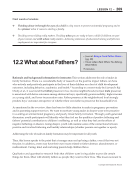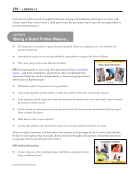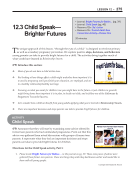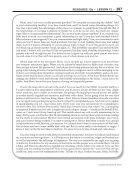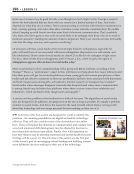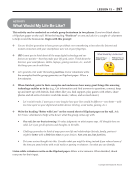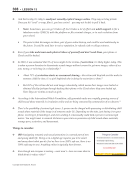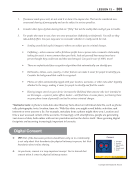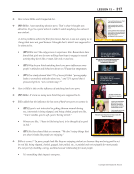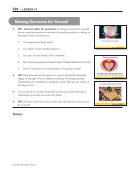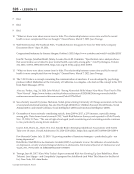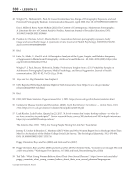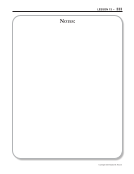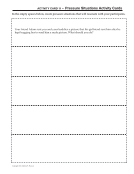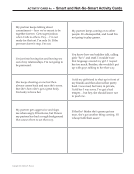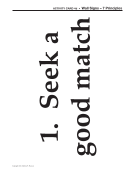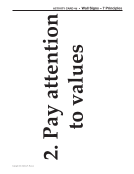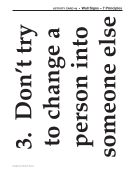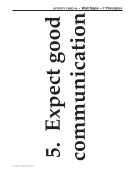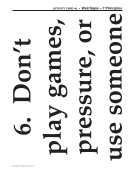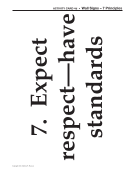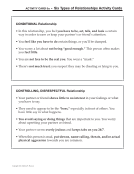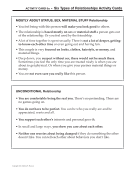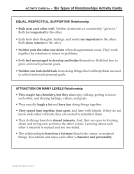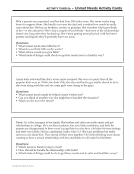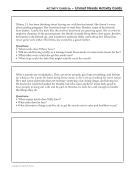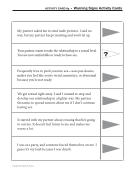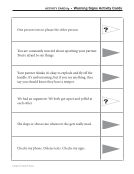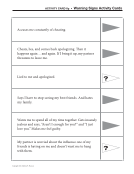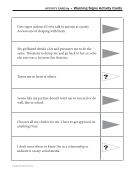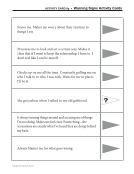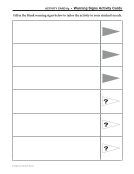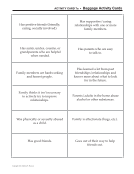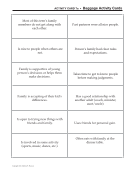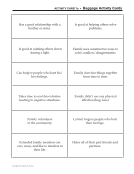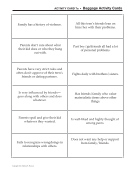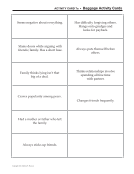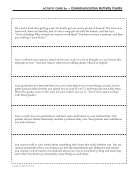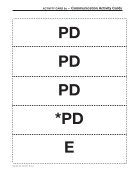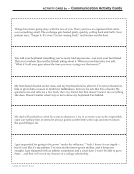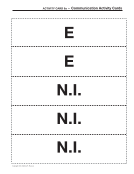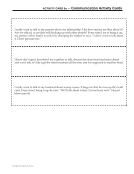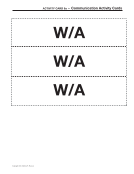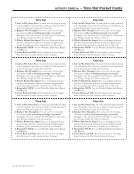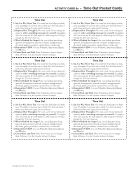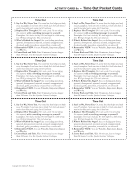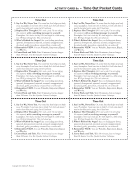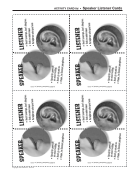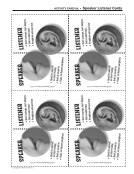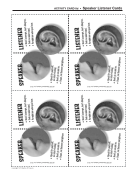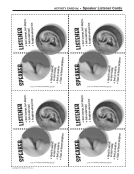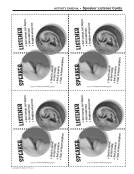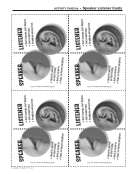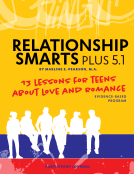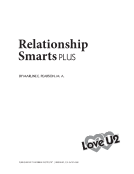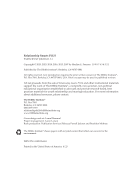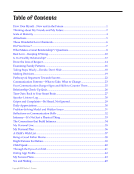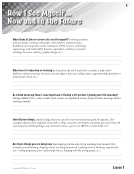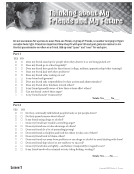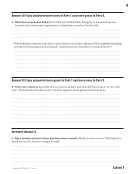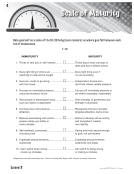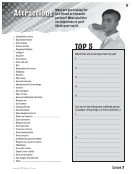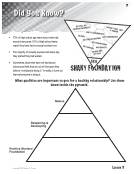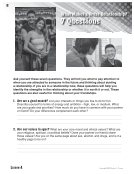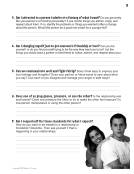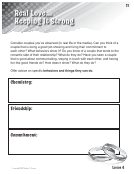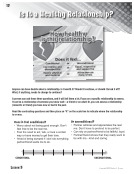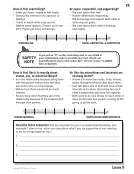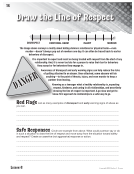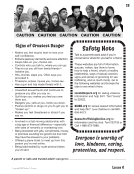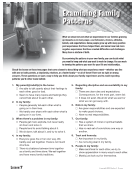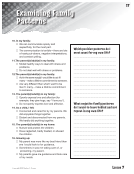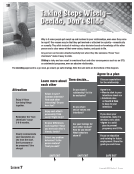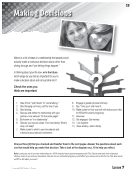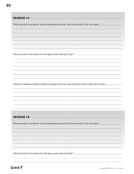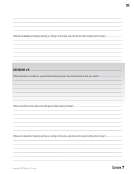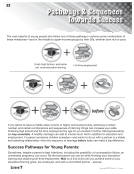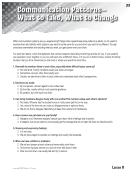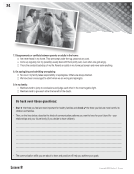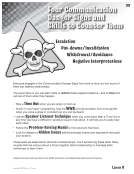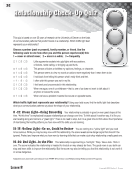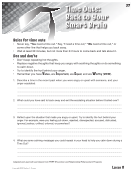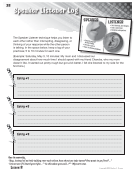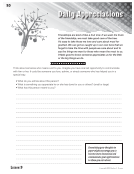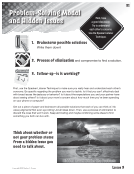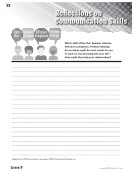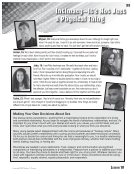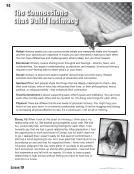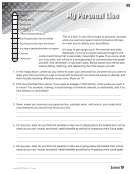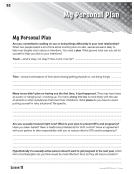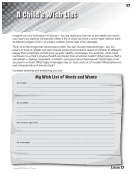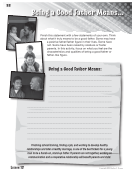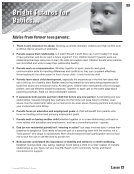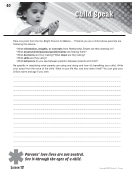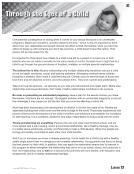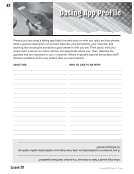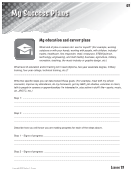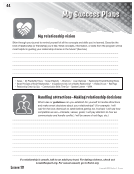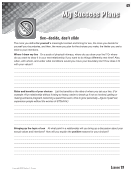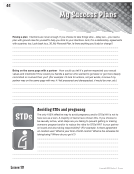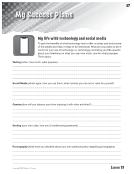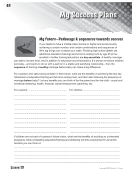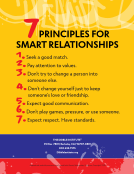vi
Copyright 2025 Marline E. Pearson
Relationship Smarts PLUS has completed a five-year evaluation involving over 9,000 teenagers in
the state of Alabama. Researchers from Auburn University conducting the study report sustained
gains over time. Findings include increases in students’ realistic understanding of relationships and
decreases in faulty relationship beliefs, broadened understanding of relationship aggression, and
declines in aggression in relationships as compared to those in control groups.4
This new edition is based on the positive results of a five-year, federally-funded evaluation conducted
by Jennifer Kerpelman, Ph.D., at Auburn University. As a result of its effectiveness, Relationship Smarts
PLUS was listed on the National Registry of Evidence-Based Programs and Practices (NREPP), a
service of the Substance Abuse and Mental Health Services Administration (SAMHSA).4
Love Notes, developed by the same author, is an adaptation of Relationship Smarts PLUS for older youth
and contains most of the same concepts. It is notable that Love Notes was put on the HHS Office of
Adolescent Health’s (OAH) list of Evidence-Based Teen Pregnancy Prevention Programs as a result
of a federally funded, 5-year random control trial conducted by researchers at the University of
Louisville. Those participating in Love Notes were 46% less likely to have a pregnancy as compared to
those in the control group. It also achieved four other outcomes: increased use of contraception and
condoms, a greater number who remained abstinent, less recent sexual activity, and less frequency of
sexual activity. These outcomes are impressive, especially so since the target audience for the study
was vulnerable teens.
Standards Correlations
Relationship Smarts PLUS has been correlated with the national curriculum standards for Family and
Consumer Sciences, and Health Education. To help with lesson plan development, you can download
the standards at Dibbleinstitute.org/correlations-rq-plus/.
References
1 Child Trends Research Brief (October 2009) Telling It Like It Is: Teen Perspectives on Romantic Relationships.
ChildTrends.org
2 For research and more information on PREP see prepinc.com.
3 ADD Health Study (The National Longitudinal Study of Adolescent Health). For information, go to cpc.unc.
edu/projects/addhealth.
4 For more information on the Relationship Smarts PLUS study (principal investigator Dr. Jennifer Kerpelman,
Auburn University), see DibbleInstitute.org/?page_id=2942.
5 Barbee, A. P., Cunningham, M. R., van Zyl, M. A., Antle, B. F., &Langley, C. N. (2016). Impact of Two
Adolescent Pregnancy Prevention Interventions on Risky Sexual Behavior: A Three-Arm Cluster
Randomized Control Trial. American Journal of Public Health, 106(Suppl 1), S85–S90. http://doi.org/10.2105/
AJPH.2016.303429. For the OAH evidence-based list, see https://www.hhs.gov/ash/oah/sites/default/
files/ebp-chart1.pdf
Copyright 2025 Marline E. Pearson
Relationship Smarts PLUS has completed a five-year evaluation involving over 9,000 teenagers in
the state of Alabama. Researchers from Auburn University conducting the study report sustained
gains over time. Findings include increases in students’ realistic understanding of relationships and
decreases in faulty relationship beliefs, broadened understanding of relationship aggression, and
declines in aggression in relationships as compared to those in control groups.4
This new edition is based on the positive results of a five-year, federally-funded evaluation conducted
by Jennifer Kerpelman, Ph.D., at Auburn University. As a result of its effectiveness, Relationship Smarts
PLUS was listed on the National Registry of Evidence-Based Programs and Practices (NREPP), a
service of the Substance Abuse and Mental Health Services Administration (SAMHSA).4
Love Notes, developed by the same author, is an adaptation of Relationship Smarts PLUS for older youth
and contains most of the same concepts. It is notable that Love Notes was put on the HHS Office of
Adolescent Health’s (OAH) list of Evidence-Based Teen Pregnancy Prevention Programs as a result
of a federally funded, 5-year random control trial conducted by researchers at the University of
Louisville. Those participating in Love Notes were 46% less likely to have a pregnancy as compared to
those in the control group. It also achieved four other outcomes: increased use of contraception and
condoms, a greater number who remained abstinent, less recent sexual activity, and less frequency of
sexual activity. These outcomes are impressive, especially so since the target audience for the study
was vulnerable teens.
Standards Correlations
Relationship Smarts PLUS has been correlated with the national curriculum standards for Family and
Consumer Sciences, and Health Education. To help with lesson plan development, you can download
the standards at Dibbleinstitute.org/correlations-rq-plus/.
References
1 Child Trends Research Brief (October 2009) Telling It Like It Is: Teen Perspectives on Romantic Relationships.
ChildTrends.org
2 For research and more information on PREP see prepinc.com.
3 ADD Health Study (The National Longitudinal Study of Adolescent Health). For information, go to cpc.unc.
edu/projects/addhealth.
4 For more information on the Relationship Smarts PLUS study (principal investigator Dr. Jennifer Kerpelman,
Auburn University), see DibbleInstitute.org/?page_id=2942.
5 Barbee, A. P., Cunningham, M. R., van Zyl, M. A., Antle, B. F., &Langley, C. N. (2016). Impact of Two
Adolescent Pregnancy Prevention Interventions on Risky Sexual Behavior: A Three-Arm Cluster
Randomized Control Trial. American Journal of Public Health, 106(Suppl 1), S85–S90. http://doi.org/10.2105/
AJPH.2016.303429. For the OAH evidence-based list, see https://www.hhs.gov/ash/oah/sites/default/
files/ebp-chart1.pdf


























































































































































































































































































